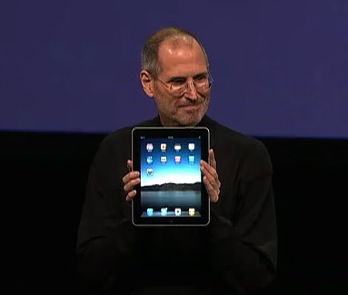Wharton’s MBA essays for 2010-11 are great; and very significantly reformulated from previous years, demanding new comment and analysis here.
The required question:
What are your professional objectives? (300 words)
This is in some senses the classic Why-an-MBA? question. What’s new is that it is really short, particularly when compared with the longer questions that follow. The implication is that Wharton, following HBS and others, are putting less and less emphasis on what applicants claim they will do on graduation. They expect to heavily influence that. It is important that you have direction and motivation, but they reckon, and they’re right, that 300 words is more than enough to get that across. Notice that there’s very little space for Why (an MBA) Now? or Why Wharton? If there’s something important to say to that, you’ll have to be really succinct, or work it into one of the other essays.
The optional questions — respond to three of the following four:
- Student and alumni engagement has at times led to the creation of innovative classes. For example, through extraordinary efforts, a small group of current students partnered with faculty to create a timely course entitled, “Disaster Response: Haiti and Beyond,” empowering students to leverage the talented Wharton community to improve the lives of the Haiti earthquake victims. Similarly, Wharton students and alumni helped to create the “Innovation and the Indian Healthcare Industry” which took students to India where they studied the full range of healthcare issues in India. If you were able to create a Wharton course on any topic, what would it be? (700 words)
- Reflect on a time when you turned down an opportunity. What was the thought process behind your decision? Would you make the same decision today? (600 words)
- Describe a failure that you have experienced. What role did you play, and what did you learn about yourself? How did this experience help to create your definition of failure? (600 words)
- Discuss a time when you navigated a challenging experience in either a personal or professional relationship. (600 words)
.
Question 1 does a number of things worth noting. First it’s mining for what you, specifically and uniquely, bring to the program. It does not automatically follow that you would create a class around your speciality, but this will be the case for many applicants, and so is a place to show your special attributes, connections, or interests. The question also therefore allows you to show your “fit with Wharton,” not only what you will contribute but what you would like to learn or experience. Further, as the language of the question suggests, it looks toward your innovativeness, which is a core value in MBA admissions. Your choice of class must show innovation with reference to the curriculum as it stands. This of course demands that you demonstrate knowledge of what is already on offer and where the gaps might be. Finally the question tests your realism and knowledge of how b-school electives and/or off-site experiential programs work. You might say “I’ll create a class that goes to visit Nelson Mandela to learn to balance business and policy objectives” but that would show total naivete as to how things really work and what’s really possible, and your application would be in the bin.
Question 2 is a deep, almost wickedly deep, dive into your personal stuff. They are probing the tissue of your motivation, your self-awareness, and self-understanding. The actual opportunity turned down is far less important than why you choose one thing over another, which should takes Adcom right to who you are as a person and what your core values are. Don’t disappoint them in this. Obviously when you turned down an opportunity, it was for a good reason, either a better opportunity or a family obligation or something like that. So what is at stake here too is your judgment and maturity. The question specifically looks to that in asking if you would make the same choice again, in other words, “how have you grown?”
Question 3 is the similar to last year, but the sub-question is new. It is a classic failure question. I’ve written a lot on how to manage failure questions (click on ‘failure essay’ tag,) and in my book. The sub-question that asks about your definition of failure, deepens the motivational, maturity, introspection angles to the standard MBA admissions failure essay. Everyone fails. Not everyone knows why, or demonstrates the self-knowledge or emotional resilience that is core to “bouncing back.”
Question 4 is a fairly typical “challenging situation” question. Of the set it is the one that most clearly asks about your relationship with others — and therefore your role in groups, teams, and so on, although it does focus you on a particular event and a specific 1-to-1 relationship. The ability to manage relationships is key to leadership, and therefore key to business success, and thus key to Wharton Adcom.
All in all, Wharton 2010-11 has put out a really state-of-the-art set of questions. Varied. Behavioral. Hard. But don’t be scared of hard questions. If they were easy you wouldn’t be able to separate yourself adequately from the crowd of pleasantry-and-platitude writers.

